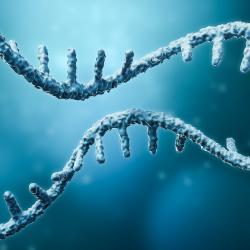Cell Biology and Molecular Genetics’ José A. Feijó Receives Faculty Award From University System of Maryland’s Board of Regents
The award recognized Feijó’s highly cited plant biology genetics research on pollen tubes and his impact on the international scientific community.

José A. Feijó, a professor of cell biology and molecular genetics at the University of Maryland, received a University System of Maryland (USM) Board of Regents Faculty Award for Excellence in Scholarship or Research. The award is the highest faculty honor presented by the board and recognizes excellence in mentoring, public service, scholarship and creative activity.
One of only 20 awardees selected out of over 40,000 USM faculty members and staff this year, Feijó will be formally recognized at a special ceremony on April 19, 2024, at Bowie State University. He and the other winners will also each receive a $2,000 prize.
“I can speak for the entire department in stating how immensely proud we are of Dr. Feijó for receiving this honor. We can’t think of a more deserving recipient,” said Kevin McIver, chair of UMD’s Department of Cell Biology and Molecular Genetics. “He is an exemplary member of UMD’s faculty, an innovative teacher, an excellent mentor and someone who is a respected voice in our department and beyond.”
With over 11,700 citations and 113 peer reviewed publications, Feijó is an internationally recognized expert and leader in the field of plant developmental biology. He uses pollen tubes—the male sex organ of plants—as a model to investigate the way cells grow and communicate with each other. Using funding from the U.S. National Science Foundation and the National Institutes of Health, Feijó made several major breakthroughs in understanding how pollen tubes evolved to sense attractant chemicals released by ovules (the female sex organ of plants) and initiate plant reproduction. His discoveries, which indicate a molecular parallel between plant and human neural systems, have implications beyond agriculture and plant biology. For that work, he was placed on the Clarivate Highly Cited Researchers list under the plant and animal sciences category in 2022—an honor that only the top 1% cited researchers in this field could achieve for that publication year.
“This award is a very big honor for me,” said Feijó, who joined UMD in 2015. “I would really like to thank my colleagues in the department for being so warm and supportive from the beginning of my arrival at UMD until now. I would not have gotten to where I am today without them.”
Feijó’s most recent research aims to bridge plant biology with other scientific disciplines, including physics and neuroscience. In 2020, Feijó’s team discovered the first sensor of the vital human hormone nitric oxide (a chemical messenger that helps nerve cells communicate) in plants. In follow-up research, Feijó’s group found that plants possessed highly evolved genes relating to glutamate receptors—proteins that are the hallmark of human neurons and involved in memory, neurodegeneration and disease—despite plants lacking a nervous system.

Throughout his career, Feijó has mentored more than 20 Ph.D. students and has organized or co-organized 24 workshops and practical courses around the world. Feijó’s lab collaborates with research groups from a range of disciplines, such as animal and evolutionary developmental biology, across the U.S. and in eight other countries including his native Portugal.
Feijó noted that the USM Board of Regents’ recognition of his efforts reaffirms his dedication to research and mentorship.
“I hope to explore new opportunities and avenues of research in the coming days, especially those that involve investigating the interesting relationships in the physiology of some types of plants and our nervous system,” said Feijó, who will give a talk on neurobiology at the Marine Biology Laboratory in Woods Hole, Massachusetts and organize a European Molecular Biology Organization workshop on plant calcium signaling this summer. “Finding these interesting connections between these very different things will allow us to dig deeper into the world around us.”
Feijó received his Ph.D. in cell biology and M.S. in plant biotechnology from the University of Lisbon in Portugal in 1995 and 1989, respectively.







